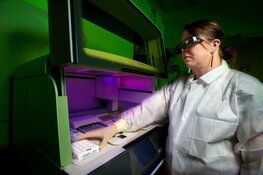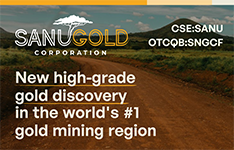At the current pace of its research, Sensei Biotherapeutics is "well-positioned" to provide a clinical update on its drug targeting advanced solid tumors, Solnerstotug, in 2Q 2025, Oppenehimer & Co. Analyst Francois Brisebois wrote in an updated research note on January 10.
The company recently shared a corporate update noting the progress in its P1/2 trial evaluating the safety/tolerability, PK/PD, and efficacy of Solnerstotug (SNS-101) as both a monotherapy and in combination with Regeneron’s PD-1 inhibitor Libtayo, Brisebois wrote.
The analyst kept his Outperform rating on the stock with a US$3.50 per share price target, a more than 560% increase over its price at the time of the note, US$0.53 per share.
"Following the early clinical Solnerstotug data (well tolerated both alone and in combination with cemiplimab, encouraging tumor regression rates observed) in the dose-escalation cohorts, we are pleased by the progress in the dose expansion cohorts (45/60 enrolled as of 1/1/25)," the analyst noted. "Beyond efficacy, Solnerstotug continues to be well tolerated with a best-in-class PK profile."
Early Data 'Continues to Impress'
Forty-five patients have been enrolled in the does expansion cohort as of the start of the year, Brisebois noted, and management said it expected full enrollment of 60 patients by the end of the first quarter.
"At this pace, we believe SNSE is on track to report clinical data, including evaluable and follow-up patient data, in 2Q25," the analyst wrote. "Dose optimization is focused on 3mg/kg and 15mg/kg Q3W to support P2 dosing across multiple patient populations."
The early clinical data for the drug "continues to impress," Brisebois said.
Promising data from microsatellite stable (MSS) endometrial cancer and MSS colorectal cancer (CRC) patients (SNS-101+cemiplimab, 12 weeks) was reported, with the latter experiencing tumor regression of 27% (previously unresponsive to PD-1), the analyst said.
Alos, Brisebois said a pembrolizumab-resistant renal cell carcinoma patient with SNS-101+cemiplimab remained on study for 12 weeks and had tumor regression of 18%.
"While early, the clearly differentiated TMab approach (pH-dependence) seems quite promising," Brisebois wrote. "Pre-clinical data to date has been encouraging. We believe SNS-101 can be used in many different indications. However, we have opted to build out a
model for NSCLC (non–small-cell lung cancer) given the unmet need and high VISTA expression."
| Want to be the first to know about interesting Biotechnology / Pharmaceuticals investment ideas? Sign up to receive the FREE Streetwise Reports' newsletter. | Subscribe |












































